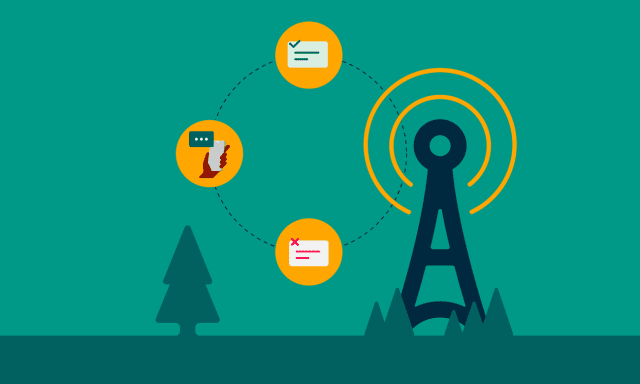Africa’s Next Fastest-growing Business Sector: Mobile Telecoms

According to a new report by World Mobile, a blockchain-based mobile operator, telecommunications now lies at the middle of the transformation that is turning the tide for the developing African economy. The research unequivocally endorses telecoms as transformation’s strongest stimulant, as it is poised to be the continent’s fastest-growing industry in the next half decade.
World Mobile garnered insights from the top executives in the region’s business scene, majority of whom (75 percent) believe that telecoms will witness a stronger metamorphosis than—in second place with a 61 percent vote—healthcare. Tourism emerged third most promising, preceding financial services, retail and manufacturing.
World Mobile’s research considered the takes of high-ranking leaders from African business outfits with a cumulative annual revenue of USD 6.5 B, companies from Nigeria, South Africa, Ghana, Ethiopia, Tanzania, Botswana, Angola, and Cameroon.
Interestingly, the potential which has been allotted to Africa’s telecoms terrain has plenty to do with increased internet connectivity, buoyed by the peoples’ rapid uptake of mobile devices and other forms of digital service. According to two-thirds (or 66 percent) of the report’s respondents, such connections are central to economic transformation.
Analysing data from the World Bank, market and consumer data tank, Statista, the pandemic year of 2020 brought about significant positive changes in internet penetration across a non-ignorable count of African nations.
Case in point, rates in Ethiopia jumped from a meagre 0.8 percent to 25 percent, marking a fair increase of more than 3,200 percent. In countries such as Guinea, Sierra Leone, and DR Congo, similar headways were observed.
To a great extent, growth in telecoms spurs growth in other sectors as societies become more digital and technology focused, and that applies very much to financial services, healthcare, retail and education.
“Not all parts of Africa, however, have strong internet connectivity and we want to help by providing a service which is affordable and reliable, and look forward to working with governments across the continent,” said Micky Watkins, CEO of World Mobile.
Meanwhile, internet-based projects with ever-increasing capacities are in the works, including Google’s almost-completed undersea cable initiative Project Equiano, Alphabet’s laser tech Project Taara, and Facebook’s 2Africa design.
Indeed, across the continent, mobile operators are upfront with doubling down on their investments into expanding their networks, as they look to leverage the positives that come with a growing population size, low mobile penetration and, of course, an increasing demand for data services.
For example, telcos in South Africa lead the way in launching commercial 5G, while others in economies like Nigeria and Kenya make stronger cases for 4G with hopes of moving to next-gen internet connectivity.
On its part, World Mobile is vested in solving Sub-Saharan Africa’s internet gap, having recently, via Zanzibar, made in-roads to the continent with means to set up a mobile hybrid network which delivers connectivity through low-altitude balloons.
Known as blimps and not much unlike Alphabet’s now-defunct Project Loon, these air-borne internet stations are a cost-effective way of bringing online not only Africans but also the 4 billion unconnected people around the world.
Featured image: Sinch.com